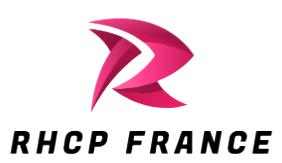Solar power is increasingly becoming a crucial part of the global energy landscape. As the technology evolves, so too do the components that enhance its efficiency and reliability. Among these, micro inverters have emerged as a transformative innovation, offering significant advantages over traditional string inverters. By understanding how micro inverters improve system reliability, we can appreciate their role in the future of solar energy. Traditionally, solar systems have used string inverters, which connect multiple solar panels in series. In contrast, micro inverters are small devices mounted directly on each solar panel, allowing each panel to operate independently.
Enhanced Energy Harvesting
One of the most significant benefits of micro inverters is their ability to optimize energy production. With string inverters, the performance of the entire system can be hindered by the weakest panel. For instance, if one panel is shaded or dirty, it can reduce the efficiency of the whole string. Micro inverters mitigate this issue by enabling each panel to operate at its maximum potential. This means that even if some panels experience shading or other performance issues, the rest can continue to generate power efficiently and check this site https://www.beny.com/de/.

Increased System Reliability
Micro inverters contribute to increased system reliability by addressing several common issues associated with traditional string inverters. First, since each panel operates independently, the impact of a single panel’s malfunction is minimized. In a string inverter system, if one panel fails, it can cause a significant drop in overall system performance. Micro inverters, however, ensure that the rest of the panels continue to function normally, thereby enhancing the overall reliability of the solar power system. Moreover, micro inverters offer built-in monitoring capabilities.
Simplified Installation and Scalability
Micro inverters also offer advantages in terms of installation and scalability. Since they are installed on each panel, the installation process can be more straightforward compared to string inverters, which require complex wiring and configuration. Additionally, micro inverters facilitate easier system expansion. Adding more panels to a system with micro inverters is a relatively simple process, as each new panel can be equipped with its own inverter without affecting the existing setup.
Improved Safety
Safety is another area where micro inverters excel. String inverters operate with high-voltage DC, which poses certain risks. In contrast, micro inverters convert DC to AC at the panel level, minimizing the amount of high-voltage DC running through the system. This reduces the risk of electrical hazards and improves overall system safety.
Long-Term Benefits
While micro inverters may have a higher initial cost compared to string inverters, their long-term benefits often outweigh the investment. The enhanced energy production, increased system reliability, and improved safety contribute to a more efficient and durable solar power system. Over time, the increased energy yield and reduced maintenance costs can lead to significant savings and a faster return on investment.
Beny Micro inverters are revolutionizing solar power systems by improving reliability and efficiency. Their ability to optimize energy harvesting, enhance system reliability, simplify installation, and provide greater safety makes them a compelling choice for modern solar installations. As the solar industry continues to grow, micro inverters are likely to play an increasingly important role in shaping the future of sustainable energy.
